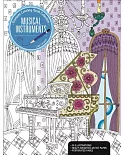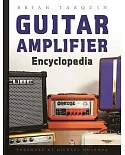Benjamin Franklin is renowned for his landmark inventions, including bifocals, the Franklin stove, and the lightning rod. Yet his own favorite invention is unknown to the general public. The
glass armonica, the first musical instrument invented by an American, was constructed of stacked glass bowls and played by rubbing one’s fingers on the rims. It was so popular in the late
eighteenth and early nineteenth centuries that Mozart, Beethoven, Handel, and Strauss composed for it. In Angelic Music, Corey Mead describes how Franklin’s instrument fell out of popular
favor, partly due to claims that its haunting sounds could drive musicians out of their minds. Some players fell ill, complaining of nervousness, muscle spasms, and cramps. Audiences were
susceptible; a child died during a performance in Germany. Some thought its ethereal tones summoned spirits or had magical powers. It was banned in some places. Yet in recent years, the
armonica has enjoyed a revival. Composers are writing pieces for it in genres ranging from chamber music and opera to electronic and pop music. Now Mead brings this instrument back to the
public eye, telling the compelling, fascinating story of its origins.





















